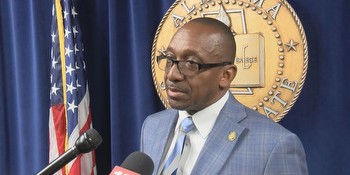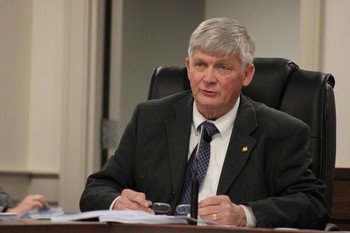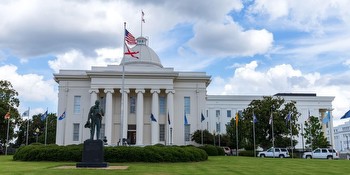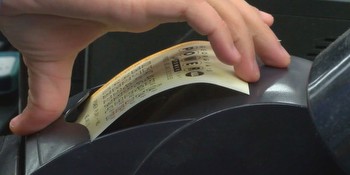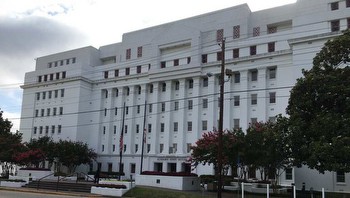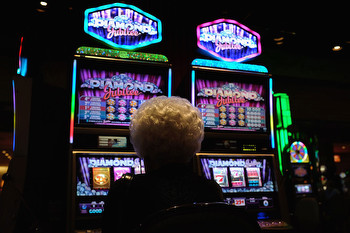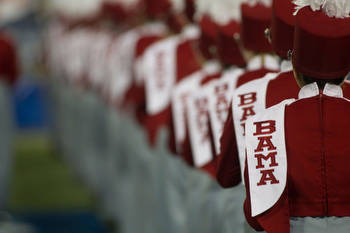Alabama lawmakers push sweeping gambling bill that would allow lottery and casinos
A group of Alabama lawmakers has unveiled a sweeping gambling bill that could authorize a state lottery and 10 casinos across the conservative Deep South
MONTGOMERY, Ala. -- A group of Alabama lawmakers unveiled a sweeping gambling bill Wednesday that could authorize a state lottery and 10 casinos across the conservative Deep South state as some Republicans look to get the question before voters in November.
Alabama is one of few states without a state lottery, after lawmakers in 1999 rejected a proposal to allow one. And unlike neighboring Mississippi, the state has been resistant to full-fledged casinos with table games and slot machines. Lawmakers estimate the proposal could provide more than $800 million in annual revenue to the state.
If approved by three-fifths of lawmakers, the proposal would be put on the ballot for voters to decide.
“We believe that people deserve the right to vote on this issue,” said Republican Rep. Andy Whitt, who led a group of legislators who worked on the bill.
The gambling bill, now backed by Republican Gov. Kay Ivey, was among several controversial measures put forward by lawmakers to kick off the legislative session. A committee advanced legislation that would make it a crime to return another person’s absentee ballot, a restriction Republican supporters said they want to enact before the November presidential election.
A draft of the gambling legislation was distributed to lawmakers Wednesday and supporters said the bill could be up for a vote in committee and on the House floor as soon as next week, depending upon support. Republican backers of the bill will need to whip votes from within their ranks and also win the votes of a substantial number of Democratic lawmakers.
“We’re trending in the right direction,” Republican Rep. Chris Blackshear, who will sponsor the bill, said of efforts to get the needed 63 votes to pass the bill in the Republican-dominated House.
Several lawmakers from both sides on the aisle said they needed more time to review the bill before determining how they will vote.
Supporters pitched the bill as a means to crack down on small electronic gambling machines that have cropped up in convenience stores and small gambling halls. The state has been in a long-running legal battle to shut down electronic bingo machines, which have whirling displays that make them resemble slot machines. The Poarch Band of Creek Indians, who are not under state jurisdiction, have three sites with the slot machine lookalikes.
The proposed constitutional amendment would allow a state lottery, seven new casino sites, sports betting and also authorize the governor to negotiate a compact with the Poarch Band of Creek Indians that would enable the tribe to offer casino games at their three existing locations. The tribe would also be able to offer such games at a new casino site in north Alabama that could attract customers from Tennessee and Georgia.
Lottery proceeds would go to education programs such as scholarships for two-year community and technical colleges and dual enrollment. Casino and sports betting revenue would go to the general fund, where lawmakers would decide each year how to allocate it.
The controversial bill to enact absentee ballot restrictions would make it a misdemeanor to deliver someone else's absentee completed ballot or distribute an absentee ballot application prefilled with someone else's name. It would be a felony to give and receive payment for helping people vote absentee.
Supporters say the change is needed to combat voter fraud, but opponents say it would discourage voting by absentee ballot.
Republican Sen. Garlan Gudger said the bill would stop bad actors ”trying to steal our elections." Gudger said the bill was changed from an initial version that sparked heated debate last year and would have largely prohibited any help with absentee ballots.
Democrats on the committee and opponents who spoke at a public hearing, questioned the need for the bill.
"This bill doesn’t just erect barriers, it obliterates the bridge connecting disenfranchised citizens to their democratic right to vote," said Tari Williams, who works with a Birmingham-based nonprofit that works with low-income people.
The same committee on Wednesday delayed a vote on legislation that would regulate which flags could be displayed outside public property in Alabama. The bill listed certain flags such as the American flag, state and city flags and others that would be allowed. A Democratic lawmaker questioned the need for the bill and language suggesting flags from previous governments would be allowed.
“Are we going to put the Confederate flag all over? The Spanish flag?" asked Sen. Linda Coleman Madison, a Democrat from Birmingham. "It looks like this is opening up a a can of worms," she added.








